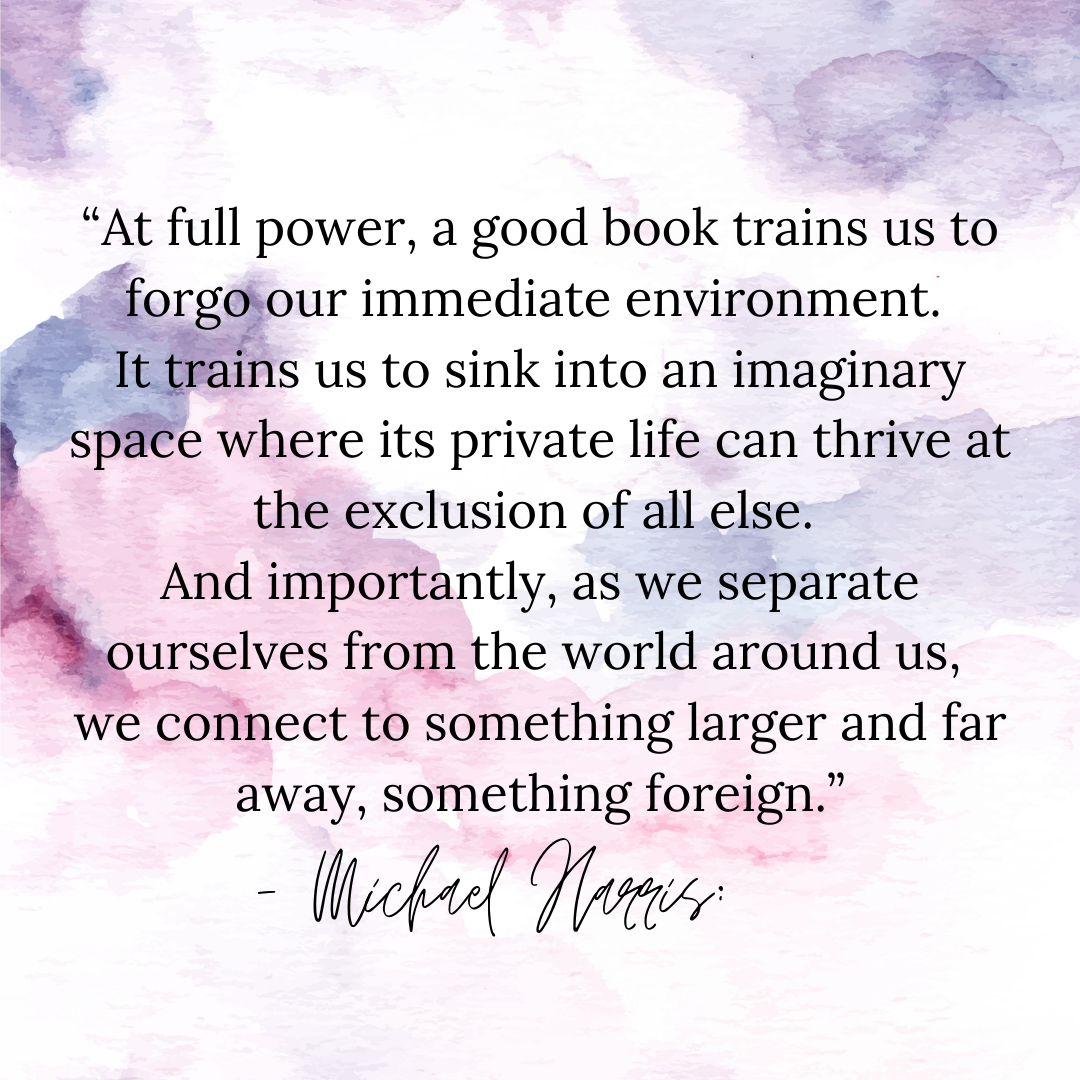Why reading with kids matters

As I write this, my children have been back at school for just over a week. In this post, I wanted to discuss the importance of reading with kids, which I thought was timely, given we are at the start of the school year.
There is a beautiful quote from Einstein that goes:
“If you want your children to be intelligent, read them fairy tales. If you want them to be more intelligent, read them more fairy tales.”
I just love this quote, because basically it is saying, you can never read enough stories, which I would whole-heartedly agree with.
I absolutely love books, and I believe this love has been instilled in me from my parents. My mum was a school teacher and was very passionate about helping kids to learn how to read, and dad has always been well-read, driven by a thirst for knowledge and understanding of how the world works. Dad often recalls his childhood memories of Christmas when he and his siblings would receive books as presents, and relish the quiet time after Christmas lunch when he could relax and read them.
For me, I loved listening to my parents read to me when I was little, as well as audiobook stories on cassette when I was older – firm favourites included Mr Men by Roger Hargreaves and Paddington by Michael Bond.
My world expanded when I learnt to read on my own. There is something delightfully independent about going to the library and selecting books you will read by yourself. I also relished reading before bed – this became a comforting activity I looked forward to every evening. My joy of reading was something I always vowed I’d share with my children, so they could experience the same kind of magic I had experienced as a child.
Fast-forward thirty years, and both my children are well on their way on their own reading journeys, but it hasn’t all been smooth sailing. My daughter has needed some extra help developing her reading skills, and doesn’t love reading as much as I did when I was her age.
English is a bugger of a language to learn. Just when you think you’ve covered off all the rules, you’ll encounter an exception. “Just sound it out” doesn’t cut it for many words (now referred to as ‘camera words’, which can’t be decoded and simply have to be memorised).
The curriculum of learning how to read has changed considerably since I was a kid. The teachers do a marvellous job, but mastering the English language can be a life-long pursuit. The most effective way I’ve found to engage my children in reading is by finding books that appeal to their personalities and capture their imaginations. Like other parents, I’ve quickly recognised some books and stories are timeless.
Here are some of the books my children have loved, and we still keep on our bookshelf (even if they have outgrown them):
When they were small, my children would gravitate to books like The Hungry Caterpillar by Eric Carle or Where’s Spot by Eric Hill. As they’ve grown, they have developed a fascination with classic tales by authors such as Enid Blyton, Roald Dahl, and J.K. Rowling. We’ve all enjoyed Anne of Green Gables by Lucy Maud Montgomery and C.S. Lewis’s Chronicles of Narnia.
Even though the language in original versions of books such as The Secret Garden, Peter Pan and Little Women is often hard to get your tongue around, my kids love the concepts and challenges introduced in these stories.
All of these tales present common life lessons: don’t trust strangers (Hansel and Gretel), war (Little Women), sacrifice and working together (The Chronicles of Narnia), persistence and resilience (The Secret Garden), the joy of magic and imagination (Peter Pan, The Wishing Chair, The Enchanted Wood, The Magic Faraway Tree, et al.) good vs evil (Harry Potter and Roald Dahl’s Matilda series). In fact, if you think of any children’s story, there is a message, a journey or transformation the characters undergo throughout the book. Books introduce us to the world, allowing us to observe it through different characters’ eyes and their experiences. Many will remain in our hearts for life – our relationship with them so deep it is as if we are walking the same path they have walked before us.
In his book, Solitude, author Michael Harris observes how reading can help trigger compassion and empathy as he explains, “The parts of the brain that are involved with reading fiction in particular, share large areas with the parts of the brain that help us understand other people in daily life. When we read, our brains behave as though we are experiencing what the hero experiences. The solitary reader rehearses the lives of others, and I think that must be the definition of empathy – to rehearse the lives of others.”
Reading abilities aside, immerse your children in these stories, whatever way you can, so they can benefit from the messages in these tales too.
When I went to the library last week to return some books with my daughter, she asked if she could get a library card. I thought this was a great idea – at ten-years-old she is fiercely independent, and I thought that if having her own library card would encourage her to read more books, that could only be a good thing!
Sure enough, once we signed up, she borrowed a book to bring home and read. The library card was free, and I explained to her that like using my card, you need to look after the books you borrow and return them on time, otherwise you will be charged. Hopefully this will be a good lesson in responsibility as well!
Now his sister has a library card, of course my son is keen to get his own card too, and has requested a library date with me one afternoon after school. My son naturally gravitated to reading, and is a voracious reader, which has also been driven by his friends who are enthusiastic readers too.
Like me, he also appreciates the quiet calmness of the library, and enjoys hanging out there and reading for a bit after choosing a book. I figure there are worse ways we could spend an afternoon, and now that we have reduced some of our afternoon commitments, we have the space and time to do this.
Here are some actions you can take to enjoy reading with your children or grandchildren:
1. Make time for reading in your day. The best teacher is a good example, so if your children see you enjoy reading, hopefully, they will be inspired to read as well.
2. Make time for reading in their day. Reading doesn’t have to be done before bed. It can be relaxing, but it can also be the last thing you (and they) feel like doing at the end of a long day. I found this particularly true when my eldest was learning to read. She couldn’t deal with the frustration of deciphering words when she just wanted to go to sleep. Depending on your schedule, reading could be done in the morning before school, in the afternoon after school, especially after they’ve had afternoon tea and a moment to unwind. You could also read on the weekend when you have more time and patience. My kids currently have 15 minutes of quiet reading time when they get home from school, before they turn on the TV or jump on a device.
3. Keep it fun. Reading should never be a chore, so bring joy to reading by finding topics you and your children are interested in. Their interests will change over time, so regular visits to the library will help to spark their enthusiasm.
4. Shorter is better. A little bit of reading regularly is better than a lot of reading less frequently. Kids have short attention spans, so reading one page and keeping them engaged is better than being distracted for a whole chapter.
5. Read as a family. Get older children to read to little ones. Little ones love the attention of their older siblings, and this is a great way for older children to practice their reading. This strategy was really helpful for us when we were home-schooling during lockdown, and my kids still love reading to each other.
6. Explore different mediums. There are a plethora of audiobooks available today through Audible or free library resources such as Bolinda’s Borrow Box. If I’m reading to each child separately, I will often set one up with an audiobook while I read to the other. Many audiobooks are read by the author or actors (my favourite children’s stories are read by Kate Winslet), who are dynamic and engaging. There are also several websites with authors and actors reading to kids, such as Storyline Online and Play School Story Time. Watching these stories is often an excellent way for kids to have some quiet time after lunch or at the end of a busy day.
I’ll leave you with this wonderful quote about books and the benefit of reading from Michael Harris: “At full power, a good book trains us to forgo our immediate environment. It trains us to sink into an imaginary space where its private life can thrive at the exclusion of all else. And importantly, as we separate ourselves from the world around us, we connect to something larger and far away, something foreign.”
